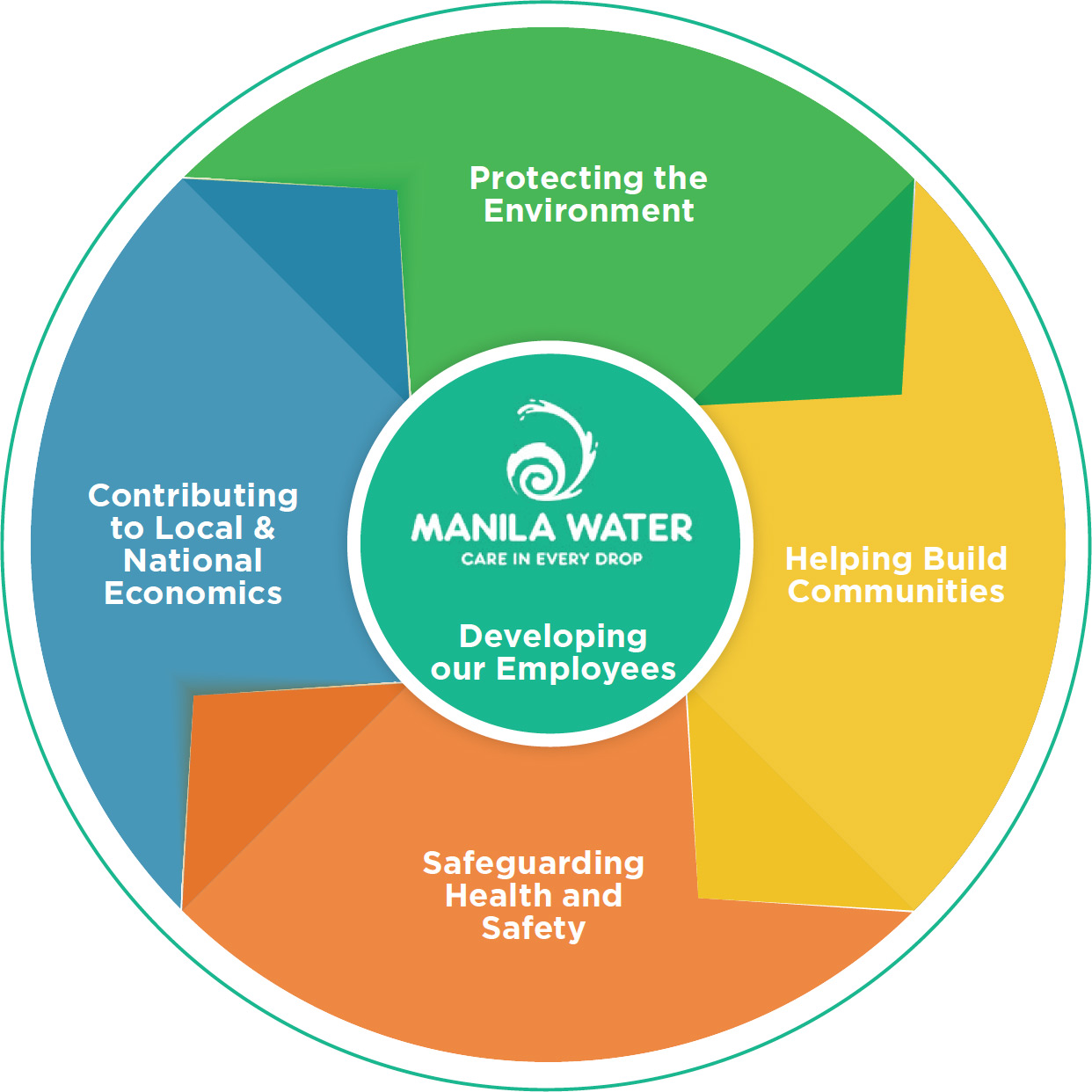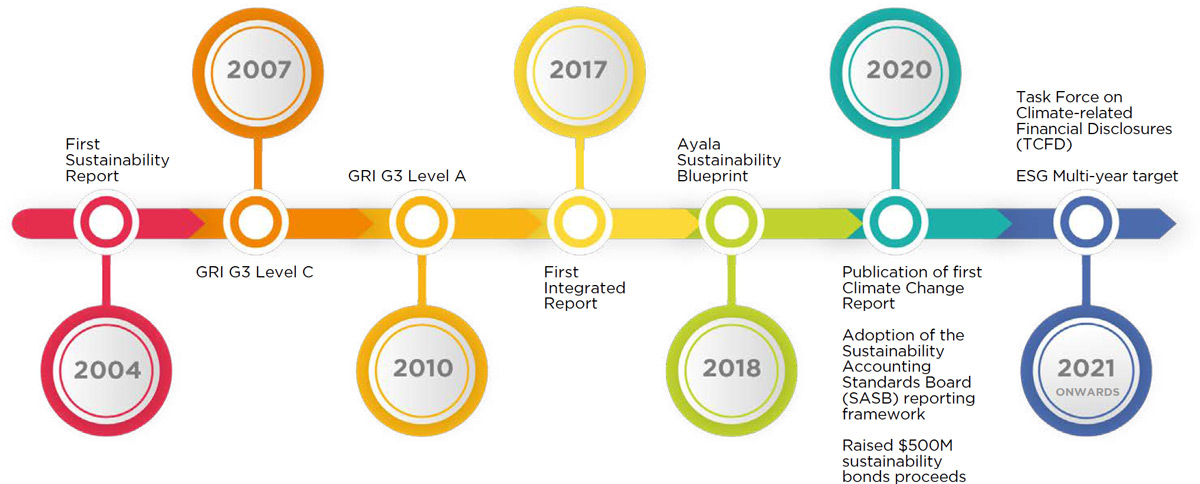Sustainability at Manila Water
Sustainability is the ability to meet the needs of the present without compromising the resources of the future. For Manila Water, this means consistently delivering essential services that address societal and environmental needs, using the core business to create positive and lasting impact for the Company, its customers, employees, business partners, supply chain, government partners and the investing community. To quote Manila Water chairman Fernando Zobel de Ayala in the early days of the East Zone concession, the Company has “a mission to fulfill, not a business to run”.
OVERALL MANAGEMENT APPROACH
Manila Water has long adopted a sustainability framework which articulates the impact its core business has on society, environment and the economy, but at the same time, the integration of the focus areas at the heart of corporate strategy, tactics and execution will ensure long-term survival and viability of the business. This framework serves as a template for communicating the unique context of sustainability in Manila Water and is used in the disclosures of key risks, accomplishments and impacts.
RESPONDING TO EVOLVING EXPECTATIONS OF STAKEHOLDERS
The Manila Water sustainability framework was adopted in 2004 and the first sustainability report was published in the succeeding year. Through the years, the Company evolved the scope and quality of its sustainability reporting in sync with the improvements in the Global Reporting Initiative (GRI) and Integrated Reporting Council (IIRC) specifications to respond to the growing expectations of the investing community. The advent of the UN Sustainable Development Goals in 2015 further cemented Manila Water’s role as a champion for Water and Sanitation, and the Company also adopted the indicators associated with SDG 6 to articulate its contributions and impact, along with those of other ancillary SDGs. (See Our Contribution to the Sustainable Development Goals here)

In recent years, investors and other stakeholders have increasingly demanded additional disclosures in ESG performance of companies. Data-driven sustainability has become more relevant to prepare businesses amidst emerging megatrends and negative externalities such as climate change, societal inequalities and a global pandemic. Given this backdrop, Manila Water commenced on using the Sustainability Accounting Standards Board (SASB) reporting framework, in addition to the others previously mentioned, for the 2020 reporting period. This new phase of the Company’s sustainability journey is a step forward to firm up Manila Water’s commitment to integrate emerging sustainability paradigms and practices into its management systems to boost longterm financial viability and address the evolving needs of stakeholders.

Developing our Employees
Ensuring a pool of competent talents that will deliver consistent water and sanitation services to customers and fuel the Company’s growth aspirations

Helping Build Communities
Providing essential services of water and sanitation to all as a key ingredient to having sustainable communities, and if those communities are to be resilient, the water and sanitation services have to be resilient too

Protecting the Environment
Rehabilitating, protecting and enhancing the sources of raw water on which the Company is dependent on, and helping restore the quality of the natural environment through the management of wastewater

Safeguarding Health and Safety
Ensuring public health through the delivery of clean water
Ensuring the safety of employees, business partners and the general public as the Company undertakes its work to expand services

Contributing to Local & Nat'l Economics
Helping create and sustain economic opportunities for people and businesses where the Company operates
In addition to adopting an additional sustainability reporting framework, Manila Water has prepared its first five-year Climate Change Report, covering its progress in implementing its climate change commitments as stated in its Climate Change Policy, first adopted in 2007. It adopts elements from the Task Force on Climate-related Financial Disclosures (TCFD) recommendations for voluntary climate-related financial disclosures to inform and involve stakeholders. The report covers accomplishments of the East Zone Concession and major business units under MWPV that have been operational for at least five years: Boracay Water, Cebu Water, Clark Water, and Laguna Water. Moving forward, with Manila Water’s recent signing up as a TCFD supporter, there is an intention to integrate the TCFD disclosures covering the reporting year 2022. The Company also intends to formalize its multi-year ESG targets in the near future.
